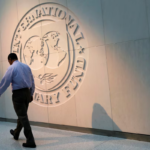
Prime Minister Sir Keir Starmer has announced that the United Kingdom is set to introduce new mandatory digital IDs aimed at combating identity fraud and addressing immigration concerns.
Speaking to a number of global leaders in London on Friday, Sir Starmer emphasised the urgent need for a modern identity system. He explained that the new mandatory digital IDs would not only make it tougher to work in the UK without proper documentation but also provide “countless benefits” to citizens.
“You will not be able to work in the United Kingdom if you do not have digital ID. It’s as simple as that,” Sir Starmer declared.
Supporting the initiative, Senior Minister Darren Jones described the planned digital ID as potentially becoming “the bedrock of the modern state.”
Like Ghana’s Ghanacard, the UK’s digital ID will contain key details such as residency status, name, date of birth, nationality, and a photo of the holder.
The introduction of digital national identity cards has become a pressing issue for many advanced economies, including the UK and the US, as identity fraud continues to rise. Some countries, however, including Ghana, have already rolled out robust systems that now serve as global benchmarks.
Ghana began its national identification programme under President John Agyekum Kufuor. After years of challenges, the system was significantly expanded under the Akufo-Addo government through the leadership of then Vice President Dr. Mahamudu Bawumia. More than 17 million Ghanaian adults were registered, with processes also initiated to capture children at birth.
Dr. Bawumia was instrumental in ensuring that Ghana’s Ghanacard could be used as both a social security and tax identification number. It has since become mandatory for opening bank accounts, accessing salaries from the government payroll, and applying for passports and driver’s licences.
While Ghana’s Ghanacard is already linked to a wide range of public services, the UK government said it hopes its system will, over time, make it easier for people to apply for services such as driving licences, childcare and welfare, and access tax records.
Globally, only a few countries have taken this step. These include Estonia, Australia, Denmark, India, Singapore, South Korea, and Ghana—each with their own world-class digital identity systems. The UK government says it intends to “take the best aspects” of these systems as it designs its own.



